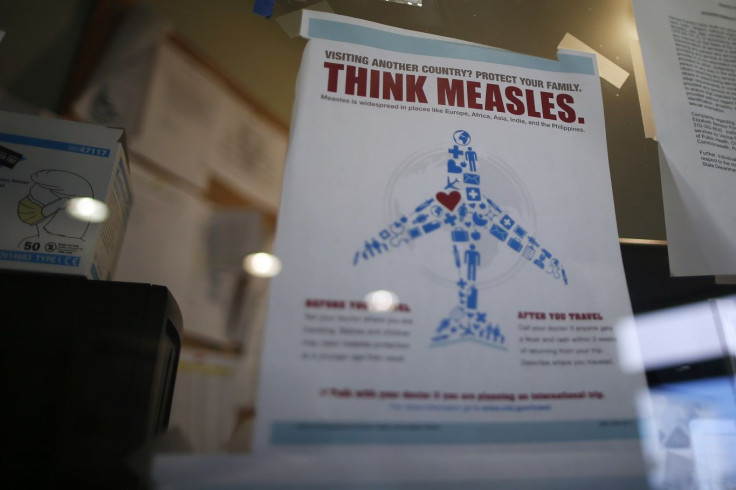Measles alert: 1 confirmed case from AirAsia KL-Melbourne flight, 1 in VIC

The Victoria Department of Health and Human Services has issued a measles alert after two confirmed cases of the infectious disease were found in Melbourne. The first case visited a number of places across Melbourne, while the second was on an AirAsia flight from Kuala Lumpur to Melbourne last week.
Case 2 was a middle-aged Australian man who fell ill on AirAsia flight D7241 from Kuala Lumpur to Melbourne on March 7 from 9:30 a.m. until midday. He was also at Tullamarine Airport at that time. He went straight to a hospital, where he was diagnosed with measles.
The first case happened earlier this month. An infected woman travelled around Melbourne and some parts of Victoria from March 3, Saturday, to March 7, Wednesday.
She was at the following places on the given date:
- March 3: Flinders Backpackers (Elizabeth Street, Melbourne), Flinders Street Railway Station, tram routes 16 and 96 to and from St Kilda beach, and St Kilda beach
- March 4: Flinders Backpackers, Coles Central (Flinders and Elizabeth St), McDonald's (Elizabeth St)
- March 5: Flinders Backpackers, Phillip Island: Nobbies Visitor Centre Café
- March 6: Flinders Backpackers, Westpac bank (Elizabeth Street), Medicare office (Galleria Shopping Centre, Bourke Street)
- March 7: Flinders Backpackers, multiple sites along the Great Ocean Road between Geelong and Warrnambool
Those who were at the mentioned places on the said dates and were on the same flight are asked to look out for signs and symptoms compatible with measles. They should alert their doctor or emergency department before going to the hospital or clinic if they develop illness over the next week. As measles is a highly infectious viral disease, other secondary cases may also occur in susceptible people.
The disease has an incubation period of between seven and 18 days, with an average of 14 days from exposure to rash. The illness usually begins with a runny nose, red eyes, cough, or common cold symptoms, followed by fever and rash. People who were born during or since 1966 and who do not have documented evidence of receiving two doses of measles vaccine are at risk.
Anyone who suspects they have acquired measles should immediately contact the Department of Health and Human Services’ Communicable Disease and Prevention and Control Section on 1300 651 160.
CHIEF HEALTH OFFICER ALERT - UPDATE: There have been 2 confirmed cases of #measles in Melbourne, with both infections likely to have been acquired overseas, in different countries. Be alert for measles in patients presenting with a fever at rash onset: https://t.co/1c8hrAPmmf pic.twitter.com/zgTPtWTFIB
— VicGovDHHS (@VicGovDHHS) March 13, 2018





















